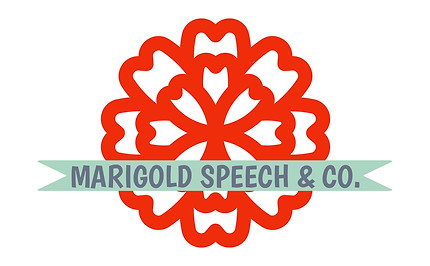ADHD in Adults: Understanding the Differences Between Men and Women and How Executive Function Therapy Can Help
- Marigold Speech
- Feb 21, 2025
- 4 min read
Attention-deficit/hyperactivity disorder (ADHD) is often thought of as a childhood condition, but many adults continue to struggle with its symptoms. In fact, ADHD is underdiagnosed in adults, especially in women. This post explores how ADHD presents differently in men and women, and how executive function therapy and coaching from a speech pathologist can help adults with ADHD manage their daily lives.
How ADHD Presents Differently in Men and Women
While the core symptoms of ADHD—difficulty focusing, impulsivity, and hyperactivity—are the same across genders, the way these symptoms manifest can vary between men and women.
Men with ADHD are more likely to exhibit external symptoms, such as hyperactivity and impulsivity, which can lead to behaviors like interrupting others, trouble sitting still, and difficulty following through on tasks. These behaviors are often more noticeable and may lead to an earlier diagnosis.
Women with ADHD, on the other hand, may present with more internalized symptoms. They are less likely to exhibit hyperactivity, but they often struggle with inattention, forgetfulness, disorganization, and feelings of being overwhelmed. Women are also more likely to have co-occurring conditions like anxiety and depression, which can complicate the diagnosis and treatment of ADHD.
Why ADHD Is Often Missed in Women
Because women are more likely to have subtle symptoms of ADHD, they may not receive a diagnosis until later in life. They often learn coping mechanisms to mask their struggles, like overcompensating at work or home to make up for their difficulties with organization. This can make it harder for women to recognize that they have ADHD, and for healthcare providers to identify the condition.
Moreover, societal expectations and gender roles can make it more difficult for women to seek help. Many women are expected to multitask, take care of family responsibilities, and manage household duties. When ADHD symptoms cause difficulty with these tasks, it can lead to feelings of shame or guilt, which prevent women from seeking a diagnosis or treatment.
How Executive Function Therapy Can Help Adults with ADHD
Executive function refers to the mental processes that help us plan, organize, remember details, and manage time. These are critical skills for success in daily life, and they are often impaired in individuals with ADHD. Executive function therapy is a type of intervention designed to improve these skills and help individuals with ADHD navigate their daily tasks more effectively.
For adults with ADHD, executive function therapy can focus on improving areas like:
Time management: Many adults with ADHD struggle with deadlines and time constraints. Therapy can help develop strategies to stay on track and prioritize tasks.
Organization: Difficulty with organizing tasks, spaces, and thoughts is a hallmark of ADHD. Therapy can provide tools to reduce clutter and streamline daily routines.
Task initiation and completion: ADHD often leads to procrastination or starting projects but failing to finish them. Executive function therapy can help individuals break down tasks into manageable steps and create action plans.
Memory: Working memory is often impaired in those with ADHD, making it difficult to hold onto information long enough to complete tasks. Therapists can help adults use strategies to improve memory retention.
The Role of Speech Pathologists in ADHD Treatment
Speech pathologists are trained to address communication and cognitive challenges, and they can be a key resource for adults with ADHD. Executive function therapy and coaching provided by speech pathologists can be tailored to meet the unique needs of each individual, whether it's a man or a woman, or any other adult facing ADHD symptoms.
Speech pathologists can help in several ways address the above issues. Here are a few other ways speech pathologists can help:
Providing individualized coaching: Speech pathologists can offer one-on-one coaching to address specific challenges related to executive function, providing personalized strategies for success.
Improving communication skills: Many adults with ADHD struggle with social interactions and maintaining conversations. Speech therapy can improve communication abilities, such as listening skills, turn-taking in conversations, and responding thoughtfully.
Addressing cognitive flexibility: Speech pathologists can teach adults how to switch between tasks more easily, adjust to new situations, and problem-solve effectively—key skills for those with ADHD.
How to Get Started with Executive Function Therapy
If you suspect that you or someone you know may have ADHD, seeking help from a speech pathologist who specializes in executive function therapy can be a transformative step. By working with a professional, individuals can learn practical strategies to manage their symptoms and improve their quality of life.
Whether you’re struggling with staying organized at work, balancing daily responsibilities, or managing relationships, executive function therapy can provide the support you need to succeed.
ADHD is a condition that affects both men and women, but it often manifests differently between the genders. While men may show more obvious symptoms, women are often overlooked due to more subtle signs and co-occurring conditions. Executive function therapy, particularly when guided by a skilled speech pathologist, offers a path to managing ADHD symptoms and improving daily functioning. If you or someone you know is struggling with ADHD, don’t hesitate to contact Marigold Speech to learn about options to enhance organization, communication, and cognitive skills for a more balanced and fulfilling life.

Comments